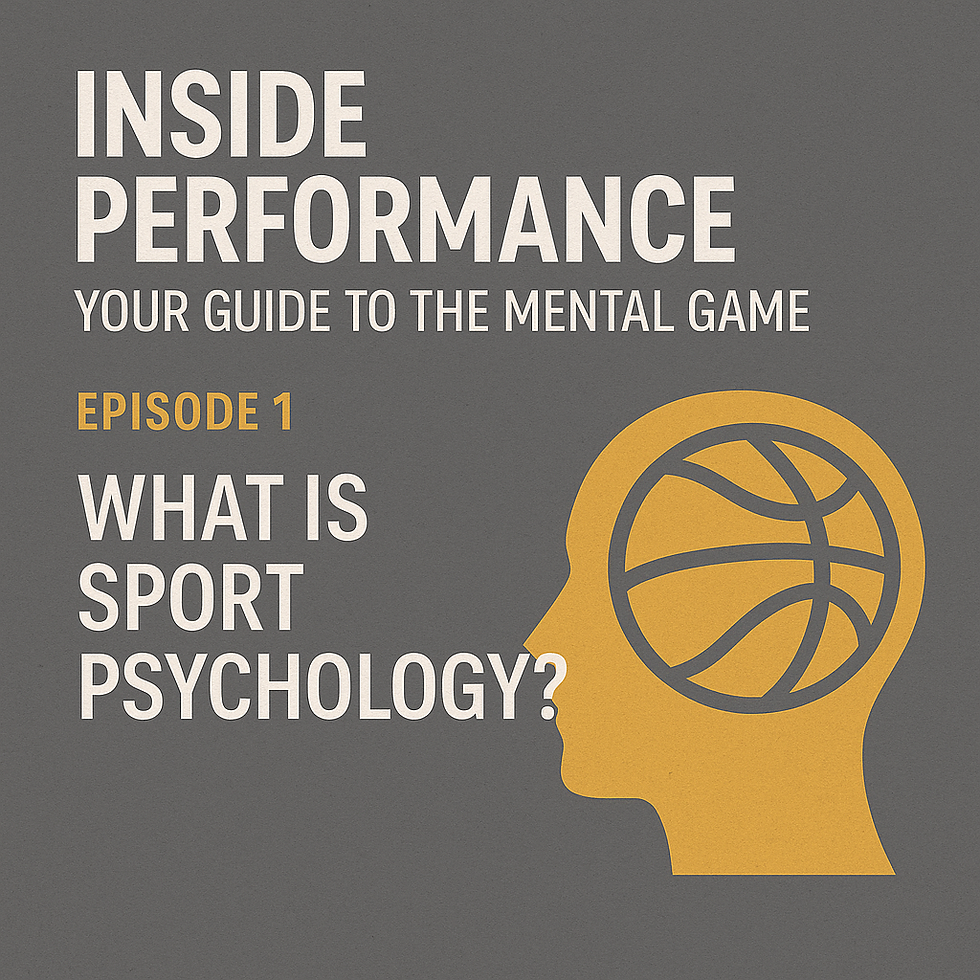Building Mental Toughness for Athletic Success
- Dylan Rodgers
- Oct 20, 2025
- 3 min read
Athletic success is not just about physical strength or skill. It also depends heavily on mental toughness. This quality helps athletes push through challenges, stay focused under pressure, and recover from setbacks. Developing mental toughness can be the difference between winning and losing, or between giving up and persevering. In this article, we will explore what mental toughness is, why it matters, and how athletes can build it effectively.
Understanding Mental Toughness in Sports
Mental toughness refers to an athlete’s ability to maintain confidence, motivation, and focus despite difficulties. It involves resilience, emotional control, and a strong mindset that supports consistent performance. Athletes with mental toughness can handle stress, bounce back from failure, and keep their eyes on long-term goals.
Some key components of mental toughness include:
Confidence: Believing in your abilities even when things get tough.
Focus: Concentrating on the task at hand without distractions.
Resilience: Recovering quickly from mistakes or losses.
Motivation: Staying driven to improve and succeed.
Emotional control: Managing anxiety, fear, and frustration effectively.
Building mental toughness is a gradual process that requires practice and self-awareness. It is not about ignoring emotions but learning how to channel them positively.

Practical Strategies to Develop Mental Toughness
Developing mental toughness involves adopting habits and techniques that strengthen the mind. Here are some actionable recommendations athletes can use:
Set Clear Goals
Define specific, measurable, and achievable goals. Break them down into smaller milestones to track progress. This helps maintain motivation and focus.
Visualisation Techniques
Regularly imagine successful performances and overcoming obstacles. Visualisation prepares the brain for real situations and builds confidence.
Positive Self-Talk
Replace negative thoughts with encouraging statements. For example, instead of thinking "I can’t do this," say "I am prepared and capable."
Controlled Breathing and Relaxation
Practice deep breathing exercises to reduce anxiety and maintain calm during competition.
Embrace Challenges
View setbacks as opportunities to learn rather than failures. This mindset fosters resilience.
Consistent Routine
Establish a daily routine that includes physical training, mental exercises, and rest. Consistency builds discipline and mental strength.
Seek Feedback and Support
Work with coaches, mentors, or sports psychologists to identify areas for improvement and receive encouragement.
By integrating these strategies into daily training, athletes can gradually enhance their mental toughness and improve performance.

Why is Mental Health Overlooked in Sports?
Despite its importance, mental health often receives less attention than physical health in sports. There are several reasons for this:
Stigma Around Mental Health
Many athletes fear being perceived as weak if they admit to mental struggles. This stigma discourages open conversations.
Focus on Physical Performance
Coaches and teams may prioritise physical training and overlook psychological well-being.
Lack of Awareness
Some athletes and support staff may not fully understand the impact of mental health on performance.
Pressure to Perform
The competitive environment can make athletes suppress emotions to appear strong.
Ignoring mental health can lead to burnout, anxiety, and decreased performance. It is crucial to recognise that mental toughness and mental health are interconnected. Supporting mental health in sports helps athletes maintain balance and sustain success.
For more insights on this topic, visit mental health in sports.

The Role of Mindfulness and Meditation in Building Mental Toughness
Mindfulness and meditation are powerful tools for enhancing mental toughness. They help athletes stay present, reduce stress, and improve focus. Here’s how to incorporate them:
Mindfulness Practice
Spend a few minutes daily observing thoughts and sensations without judgment. This increases self-awareness and emotional regulation.
Guided Meditation
Use apps or recordings designed for athletes to practice relaxation and concentration.
Pre-Competition Routine
Include mindfulness exercises before events to calm nerves and sharpen attention.
Body Scan Technique
Focus on different parts of the body to release tension and improve mind-body connection.
Research shows that athletes who practice mindfulness experience better performance consistency and quicker recovery from setbacks. These techniques complement physical training by strengthening the mental foundation.
Building a Supportive Environment for Mental Toughness
Mental toughness does not develop in isolation. A supportive environment is essential for growth. Here are ways to create one:
Encourage Open Communication
Foster a culture where athletes feel safe discussing mental challenges.
Provide Access to Professionals
Ensure availability of sports psychologists, counsellors, or mental coaches.
Promote Team Cohesion
Strong relationships with teammates can boost confidence and reduce stress.
Educate Coaches and Staff
Train them to recognise signs of mental strain and respond appropriately.
Celebrate Effort and Progress
Acknowledge hard work and resilience, not just results.
When athletes feel supported, they are more likely to develop and maintain mental toughness, leading to sustained success.
Building mental toughness is a journey that requires dedication, practice, and the right mindset. By understanding its components, applying practical strategies, and fostering a supportive environment, athletes can unlock their full potential. Remember, mental toughness is not about being unbreakable but about being adaptable, resilient, and confident in the face of challenges.



Comments